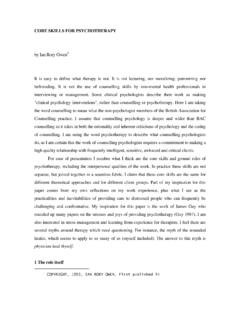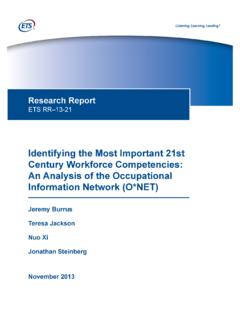Transcription of Dyslexia Fact Sheet
1 Dyslexia Explained It's time we all understand Dyslexia properly as a different way of thinking, not a disadvantage . Sir Richard Branson To find out more take our Dyslexic Thinking Skills test here 10 Facts you need to know about Dyslexia 1 At least 1 in 10 people are dyslexic. 6 Each dyslexic will have a different pattern of strengths & challenges. 2 Dyslexia is genetic so it runs in families. 7 Early identification is key to success in education & in preserving self-esteem. Dyslexic brains are wired' slightly differently 3 meaning they have a different way of processing information.
2 8 If we place as much importance on dyslexic strengths as difficulties they'll likely go far! 4 This difference results in a pattern of strengths like critical thinking, creativity & communication skills. 9 4 in 5 successful Dyslexics attribute Dyslexic Thinking Skills to their success. It also results in challenges affecting traditional 5 learning such as reading, writing, spelling, rote learning, memory, concentration. 10 We've known how to identify & support Dyslexia since the 1930's! Dyslexia Explained Dyslexic Thinking has many benefits. If identified &. supported dyslexics can achieve amazing things.
3 Kate Griggs Founder, Made By Dyslexia 10 Reasons why it's important to identify Dyslexia 1 The earlier it's identified & supported, the sooner kids catch up & keep up. 6 Unidentified Dyslexia results in low self- esteem .the label' gives self-understanding. 4 in 5 dyslexics say that knowing they were 2 Screen or test as soon as parents, teachers or kids see a problem'. Don't wait. 7 dyslexic helped them understand their strengths &. difficulties, & to develop perseverance. 3 Dyslexia can be identified from age 5 when severely dyslexic kids will show signs. 8 40% said they were aware they couldn't do what their classmates could aged 5.
4 4 Less severe dyslexics may grasp early reading but struggle as their workload increases. 9 70% said they were aware they couldn't do what their classmates could aged 7. 5 If there's a mismatch in what a child seems capable of & what they produce get tested. 10 Dyslexics often fail tests & exams despite having great knowledge & ability of subject: 9 in 10 have poor spelling, grammar, punctuation, but can be great creative writers. 3 in 4 struggle with times tables. But around half of dyslexics are great at maths.










